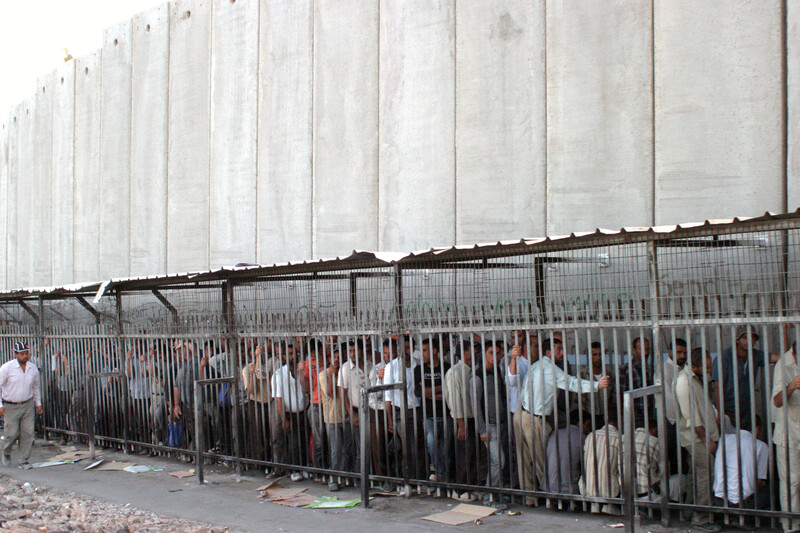The Electronic Intifada 20 February 2014

Israel’s wall around the occupied West Bank city of Bethlehem restricts the basic freedom of thousands of Palestinians every day.
APA imagesI risked imprisonment and death in order to study at Washington University.
Last summer I was thrilled to learn that I had earned admission and a scholarship to the Brown School of Social Work. But I almost could not be here – for one reason.
I am a Palestinian from Bethlehem.
I needed to go to the United States consulate in Jerusalem to apply for my visa. Bethlehem is only six miles from Jerusalem, but it is extremely difficult to get there because less than a decade ago Israel built a giant wall between the cities.
I went through the proper bureaucratic channels to apply to enter Jerusalem. The Israelis denied me permission – on four separate occasions. They claimed I was a security threat – but offered no explanation why. I have never committed any crime or been to jail.
When I explained the situation to the American officials they told me that’s not their problem. In order to apply for a visa I needed to be at their consulate at 10AM on 16 July.
So I had to sneak around like a criminal, evading soldiers. I went miles away to find a small opening. I went through hills. I went through thorn trees. I crawled through a sewage pipe – knowing that others caught in such pipes have suffocated to death after Israeli soldiers discovered them and shot tear gas into the pipes or sicced dogs on them.
When I arrived in Jerusalem I washed myself with a bottle of water, covered my cuts and bruises with an extra pair of clothes I had in a backpack and went into the consulate to talk with the American officials. Then I immediately hid in a friends’ house for three days, not daring to go outside.
I made it here. I’m lucky – thousands of other Palestinians who want to study aren’t so lucky. That’s why it upset me to read that Washington University Chancellor Mark Wrighton recently condemned the American Studies Association’s (ASA) endorsement of a boycott of Israeli academic institutions.
Although an extremely limited boycott, which only targets institutions and not individual academics, Wrighton stated that he was “deeply troubled and dismayed” because “the boycott directly violates academic freedom.”
What about my academic freedom? What about the tens of thousands of Palestinian children and teachers whose movement to and from their schools is impeded by the Israeli military?
Forget academic – what about basic freedom? Israel made my family stateless refugees in 1948 until now. It steals our lands. It steals our water. It denies us freedom of movement. It taxes us without representation. It subjects us to arbitrary violence and detention without any meaningful due process. It allows fanatical, armed religious settlers to torment us and applies a separate code of law to Palestinians than it does to Jewish Israelis.
Why is Chancellor Wrighton unconcerned about violations of both my academic rights and my basic human rights, but he is “deeply troubled and dismayed” that perhaps a handful of Israeli academics may have to pay for their own airplane tickets if they decide to participate in an ASA conference?
I commend the ASA for heeding the call of the Palestinian people for boycott, divestment and sanctions against institutions that are complicit in sustaining the Israeli system of ethnic discrimination and domination.
This nonviolent movement helped change the unjust apartheid system in South Africa – and it can also support our struggle to end apartheid in Palestine so that all can enjoy equal rights, regardless of race, ethnicity or religion.
Murad Owda is from Dheisheh refugee camp in Bethlehem, Palestine, and an MSW student at Washington University in St. Louis, Missouri. This article first appeared in Student Life and is reproduced with permission.

